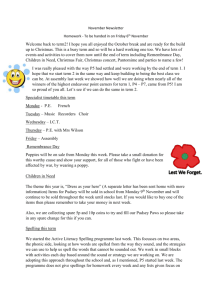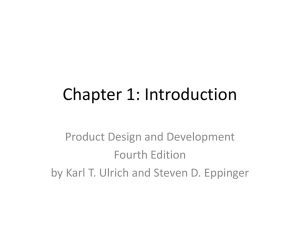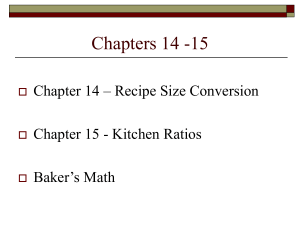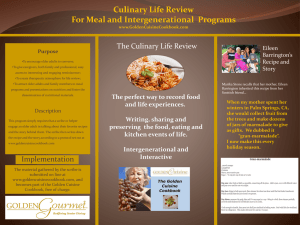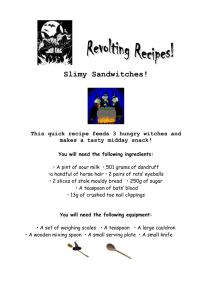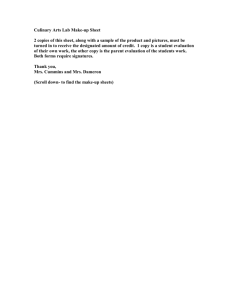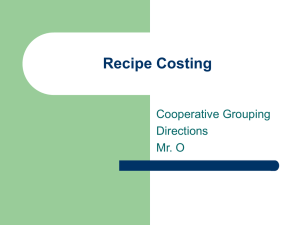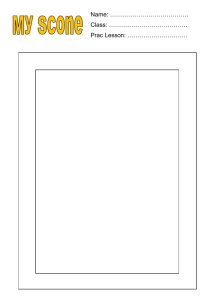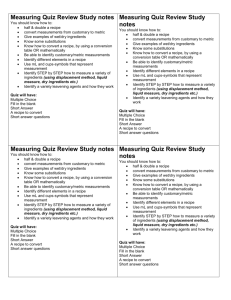Recipe Scaling
advertisement
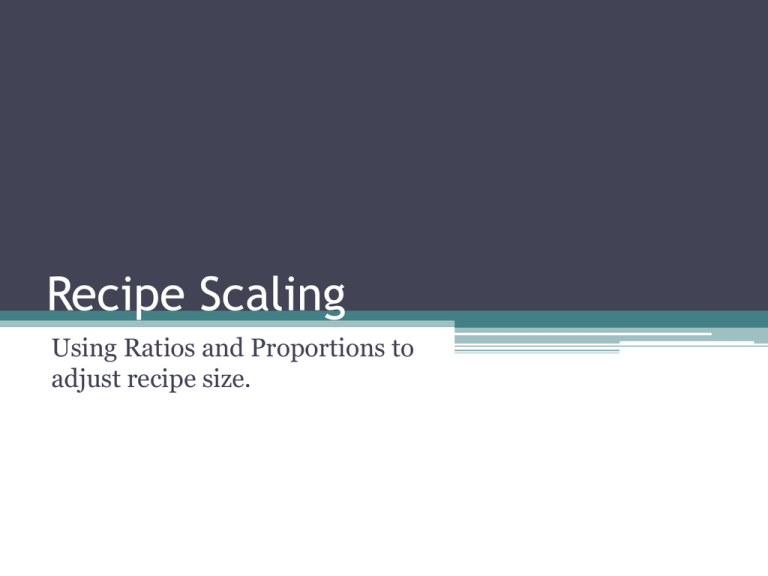
Recipe Scaling Using Ratios and Proportions to adjust recipe size. Recipe Scaling is all about using your favorite recipe: For 200 rather than the 4 it was written for: And still having it turn out! Like a Champ! You Already Know How to do this! • How would doubling a recipe be done? • How would that look on paper? • Multiply all of the ingredients by 2. • Or if a recipe yielded 4 portions and you needed it for 8 portions: 8/4 = 2 • Here the recipe is increasing in size so you need to multiply it by a number bigger than 1. Let’s try it a different direction: • How about halving a recipe? • And how would this look on paper? • Divide ingredients by 2, or multiply by 0.5. • If the recipe yields 6 portions and you need 3: 3/6 = ½ or 0.5 • Here the recipe is decreasing in size so you need to multiply it by a number smaller than 1. • You have just used ratios NewYield OldYield NewIngredi entAmt OldIngredi entAmt NewYield OldYield NewIngredi entAmt . OldIngredi entAmt . 25 6 x 1 12 Arrive at a ratio: • Now that you understand what a proportion is let’s arrive at a ratio that will be easier to work with in the kitchen: • If you solve, or reduce the fraction: NewYield OldYield • Then you can multiply this result by your old recipe’s ingredients’ quantities • To arrive at the new recipe’s ingredients’ quantities. • Example: 4/2 = 2 = doubling • Or: 3/6 = 0.5 (1/2) = halving NewYield OldYield NewYield OldYield 18 4 4 .5 Let’s work a recipe: • Recipe yields 4 portions and we want 10: 10 • New Yield/Old Yield = NewYield 2 .5 • 10/4 = OldYield 4 • 2.5 = Conversion Factor = CF • Ingredients: Old Qty: CF: New Qty: • Flour 2 cups x 2.5 = ______ • Water 8 floz. x 2.5 = ______ • Egg 2 each x 2.5 = ______ • Baking Powder 1 tsp. x 2.5 = ______ • Cinnamon 2 tsp. x 2.5 = ______ It turned out! Bon Appétit

